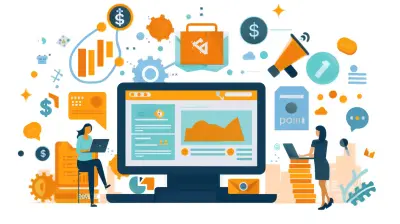The Value of Continuous Learning in Project Management
29 October 2025
Let’s be real for a second—project management isn’t what it used to be. Gone are the days when a Gantt chart and a decent timeline meant you were on top of your game. In today’s fast-paced world, tools evolve, client expectations shift, and team dynamics change quicker than you can say “scope creep.” So, if there’s one thing every project manager needs in their toolbox besides a good coffee mug—it’s continuous learning.
Now, if you’re thinking, “Great, more training sessions and certifications?!”—hold up. Continuous learning isn’t just about fancy letters after your name. It’s about staying sharp, being adaptable, and, most importantly, giving your projects the best chance of success. So buckle up, because we’re diving deep into why ongoing education is the secret sauce to being a top-tier project manager.
What Exactly Is Continuous Learning?
Let’s break it down. Continuous learning is the process of constantly developing new skills, knowledge, and perspectives throughout your career. It’s not a one-time event like a degree or a single course—it’s a mindset.Think of it like updating your smartphone. You wouldn’t go years without a system update, right? Same goes for your skills and knowledge as a project manager. Industries change. Tools improve. Approaches get revised. If you’re not learning continuously, you’re falling behind.
Why It Matters in Project Management
Project management is like juggling flaming swords on a moving treadmill. You’re managing people, timelines, budgets, risks, and expectations—all at once. The more you know, and the more current that knowledge is, the better equipped you are to lead your team and deliver successful outcomes.Here’s why continuous learning is seriously non-negotiable:
1. The Landscape Changes—Fast
New project management software? Check. Agile becoming the norm? Check. Stakeholder expectations shifting toward hyper-transparency and real-time updates? Double check.Keeping up means staying relevant. And relevance = value. If you’re familiar with the latest metrics, frameworks, or digital tools, you automatically bring more to the table.
2. Better Decision-Making
When you’ve invested in developing your skills, you’re not just guessing anymore—you’re making informed, educated decisions. Whether it’s choosing the right project methodology or managing risks effectively, learning fuels confidence and clarity.3. Boosting Team Morale and Performance
A well-informed project manager has more than just technical knowledge—they know how to inspire. When your team sees that you’re committed to growth, it encourages them to grow too. It sets a positive tone and builds a culture where learning is valued.
The Many Faces of Learning
One of the cool things about continuous learning is that it doesn’t have to be time-consuming or expensive. You don’t need to sign up for a PhD program to get ahead. Here are a few ways you can keep your knowledge fresh:✦ Formal Education
Courses, certifications, and workshops—these are your classic learning tools. Think PMI certifications, Scrum Master courses, or even leadership bootcamps.✦ Informal Learning
Reading blogs, tuning into podcasts, watching YouTube tutorials—this stuff adds up. A 15-minute podcast on Agile trends during your commute? That counts!✦ Networking
Yep, talking to other project managers is a learning experience too. Join LinkedIn groups, attend meetups or webinars, and trade war stories. You’ll pick up insights that no textbook will ever teach you.✦ On-the-Job Learning
Every project is a classroom. Mistakes? Lessons. Team dynamics? Case studies. Those budget hiccups you solved last-minute? Practical knowledge that sticks.
How Continuous Learning Impacts Your Career
Let’s talk longer-term benefits. Because yes, learning helps you in the moment, but it also shapes your professional journey.🚀 Career Advancement
Want to lead bigger projects? Handle more responsibility? Move into a managerial or executive role? Hiring managers love candidates who are proactive about learning. It shows initiative, drive, and leadership.🛡️ Job Security
In a world that’s constantly evolving, adaptability is a superpower. When you continue learning, you make yourself indispensable. You become the person who can pivot, handle change, and lead others through uncertainty.💼 Employment Opportunities
Being up to date with certifications and new methodologies not only enhances your current role but opens doors elsewhere. Recruiters notice when you have skills that match emerging trends and industry demands.Continuous Learning = Competitive Advantage
Let’s face it—competition is stiff out there. Whether you’re a freelance PM or climbing the ladder in a corporate gig, standing out matters. Continuous learning gives you the edge.Consider this:
- Two equally experienced project managers apply for the same job.
- One has up-to-date Agile certifications, knowledge of emerging tools, and regularly contributes to thought leadership platforms.
- The other hasn’t taken a course since 2015.
Who do you think gets the call back?
Exactly.
Encouraging Learning Within Your Team
Project managers don’t operate in a vacuum. Your team’s growth is just as important as your own. So how can you build continuous learning into your team culture?✅ Lead by Example
If you’re signing up for certifications or sharing interesting articles, your team will notice. Show them learning isn’t extra—it’s essential.✅ Make Space for Learning
Dedicate time in weekly standups or project reviews to share what people are learning. Even five minutes can spark curiosity and encourage knowledge sharing.✅ Provide Resources
From training budgets to access to learning platforms like LinkedIn Learning or Coursera—make it easy for your team to learn.Overcoming Common Roadblocks
Still not sold on the value of continuous learning? Maybe one of these mental blocks sounds familiar:“I Don’t Have Time”
Totally get it. Between back-to-back meetings and endless to-do lists, squeezing in learning feels impossible. But even 10–15 minutes a day—reading an article while drinking your morning coffee—can go a long way.“It’s Too Expensive”
Sure, some courses aren’t cheap. But not all learning comes with a price tag. There’s a ton of high-quality, free content out there. Google is your friend.“I Already Know Enough”
Let’s be blunt—you don’t. None of us do. The day you stop learning is the day you stop leading effectively. Harsh? Maybe. True? Definitely.Real Examples of Growth Through Learning
Let’s look at a couple of real-life examples that truly highlight the power of continuous learning in project management.Case 1: From Chaos to Clarity
Sarah, a PM in a mid-sized marketing firm, struggled with consistent budget overruns. She decided to take a short course on project budgeting strategies. Within three months, her projects were hitting budget targets more consistently, and her clients started giving glowing feedback. All from a course that took her less than a week to complete.Case 2: New Tools, New Wins
Raj, a seasoned project manager, felt overwhelmed by all the new tools his younger team members were using. Rather than feeling left behind, he took it as a signal to learn. He dove into online tutorials for project collaboration tools like Miro and Notion. Soon enough, he was the go-to guy for organizing brainstorming sessions—earning major respect.How to Get Started—Today
Alright, enough talking. Let’s get you on the path to becoming a learning machine.🌟 Step 1: Set a Goal
What do you want to improve? Time management? Risk assessment? Pick a focus to guide your learning path.🌟 Step 2: Choose Your Learning Method
Are you a podcast person? Prefer reading articles? Love structured courses? Pick the format that suits your style.🌟 Step 3: Schedule It
Block out time in your calendar. Treat learning like a meeting with your future self—you don’t want to be late.🌟 Step 4: Apply What You Learn
Knowledge without action is just trivia. Start using your new skills in real projects. That’s how stuff sticks.Wrapping It Up
Continuous learning isn’t just a nice-to-have for project managers—it’s a must. The world’s changing fast, and the best way to stay ahead is to keep learning, adapting, and improving. Whether you’re leading a small team or managing global projects, the commitment to growth will set you apart.So, ask yourself: when was the last time you learned something new for your role?
If it’s been a while, that’s your cue. Start today. Your future self—and your projects—will thank you.
all images in this post were generated using AI tools
Category:
Project ManagementAuthor:

Susanna Erickson
Discussion
rate this article
1 comments
Elias Lynch
Thank you for this insightful article! Emphasizing continuous learning in project management not only enhances skills but also fosters innovation and collaboration. It’s a vital strategy for success in today’s dynamic environments. Great read!
October 29, 2025 at 4:20 AM

Susanna Erickson
Thank you for your kind words! I'm glad you found the article valuable and agree on the importance of continuous learning in project management.


